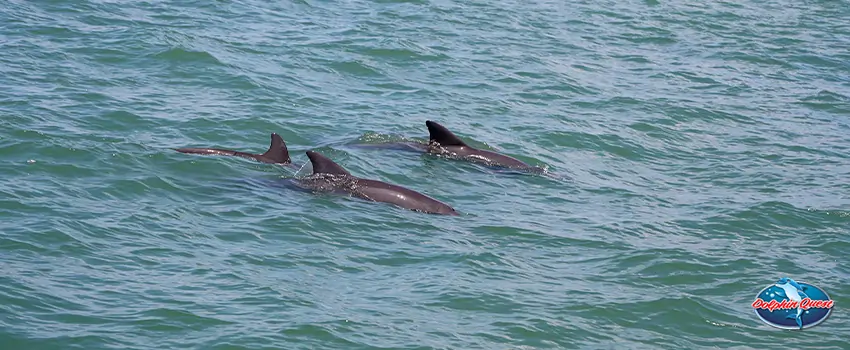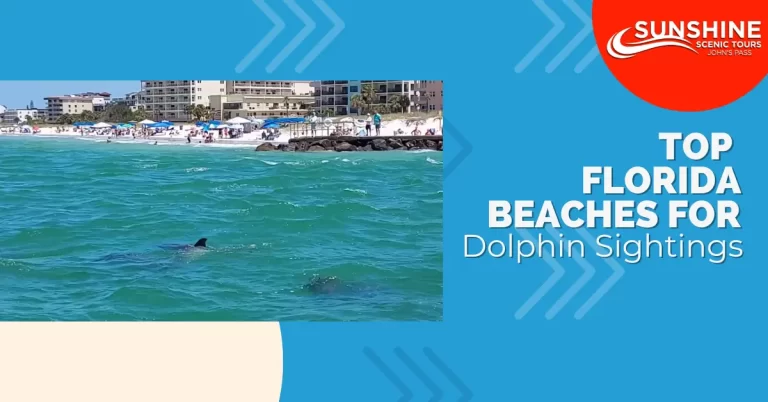Their beautiful, sleek, pearl-like bodies gracefully gliding just under the water are a sight to behold. And when they bob up their smiling heads with their beak-like snout and show off some awesome water flips, they instantly win the hearts of many onlookers. So it comes as no surprise why dolphins are one of the most endearing creatures on earth. Despite their friendly demeanor, they are predators of the underwater world.
More than being cute, they play an important role in keeping the balance of life underwater. As our environment becomes more threatened each day by various changes, it becomes vital for us humans to recognize the importance of dolphins in the ecosystem. Without these lovable creatures, the equilibrium of marine life and our very existence are threatened with extinction.
The Different Dolphin Species
Before we discuss why dolphins are important, let’s get the basics down first.
Dolphins are odontocetes, meaning they’re toothed sea monsters. They are divided into five families — the ocean dolphins being the largest with 38 species and river dolphins with four families having one species each.
Ocean Dolphins
Ocean dolphins populate the waters across the globe, starting from the equator up to the ice edges. There are 38 species of them, with the
majority residing in tropical and warm waters. They range in size from the smallest, such as tucuxi and New Zealand dolphin, to the largest, which includes the orca, false killer whale, and pilot whale.
The largest ones are those that dominate the top of the dolphin food chain. Some other dolphin species include spotted, striped, spinner, dusky, rough-toothed, white-beaked, hourglass, bottlenose, Heaviside’s, Hector’s, Commerson’s, Fraser’s, Clymene, Australian humpback, Australian snubfin, Atlantic humpback, Atlantic white-sided, and more.
Size isn’t the only thing that differentiates every species. They also have different numbers of teeth. Risso’s dolphins have the least with only 14, while spinner dolphins have the most with 240. The sizes, shapes, and positions of their teeth vary depending on their prey.
Of all the ocean dolphin species, the bottlenose dolphins are considered the smartest. They have complex communication skills and can play games with other species, such as humpbacks. According to the Whale and Dolphin Conservation (WDC), bottlenose dolphins have the ability to recognize themselves in the mirror.
River Dolphins
There were four river dolphin families, but only three remain today. The Yangtze river dolphins were declared by scientists as extinct in 2007. The three families left are the franciscana, South Asian river dolphin, and Amazon river dolphin. All of which live in geographically separated bodies of freshwater.
Marine dolphins are thought to be their ancestors, but they don’t look much like them. This is mainly because they evolved over millions of years of living in a freshwater environment. They have slender beaks, small eyes, undeveloped dorsal fins, flexible bodies and necks, large flippers, pronounced forehead melons, and numerous teeth.
Similar to some ocean dolphin species, river dolphins also face the threat of becoming extinct. In fact, they are more endangered due to the space-limiting freshwater environment they live in. With humans continuing to hunt them and destroy their habitat, river dolphins are at a high risk of being extinct.
What Is a Dolphin’s Niche?
How do dolphins help the environment? Similar to other creatures in the wild, they have ecosystem importance, too. They play a vital role in the world we all live in.
All the previously mentioned dolphin species have their own ecosystem importance. Having one of them extinct can greatly affect the balance in the environment.
To answer the question: “Why are dolphins important?” Let’s take a look.
1. Dolphins are ecological indicators.
The presence of dolphins in the wild helps researchers know whether there’s an imbalance in the ecosystem.
Let’s take a look at one specific dolphin species: the bottlenose. This dolphin’s niche keeps the balance of the marine life food chain.
A bottlenose loves to feed on fish, jellyfish, squids, and other small aquatic animals. Similarly, they are also food to bigger predators, such as whales and sharks.
Without them, their prey would significantly increase in number, and their predators wouldn’t have adequate food to eat. Without these lovable bottlenose dolphins, the ecological balance in the bodies of water they live in would surely get disrupted.
2. Dolphins eat ill fish.
The dolphins’ ecosystem helps keep the lives of other marine life and humans safe. This is because they prey on ill or sick fish, which are easy for them to catch. This helps cut down or eliminate infectious diseases among different fish populations.
There are fish infected with ciguatera toxin. When ingested, they can cause food poisoning, pain, nausea, and cardiac and neurological symptoms. With dolphins around, there are lower chances for us humans to eat ill fish.
3. Dolphins help with marine studies.
Dolphins also help researchers and scientists learn more about life under the sea. Tissue samples from a dolphin ecosystem can be used in studies regarding marine creatures, their prey, and chemicals or pollutants present in the bodies of water.
In fact, some samples from marine mammals, including the bottlenose, yielded data and information, which are mostly about diseases and pollutants. These data about dolphins play a significant role in both the environment and public health.
Enjoy Watching Dolphins in Their Natural Habitat
Maintaining the natural dolphin ecosystem is essential for the survival not only of its species but of other marine life as well.
At Sunshine Scenic Tours, we understand the importance of dolphins in the ecosystem. We provide tours and cruises for people wanting to observe dolphins in their natural homes without causing harm to them.
When you go on our tours and cruises, you’ll experience what it feels like to get up close with the bottlenose dolphins in the Floridian waters. Our crew knows the best spots to sight these sociable creatures.
We promote wildlife conservation during our tours and cruises. For inquires, don’t hesitate to give us a call today. Come and enjoy an educational yet exhilarating dolphin cruise in John’s Pass!







